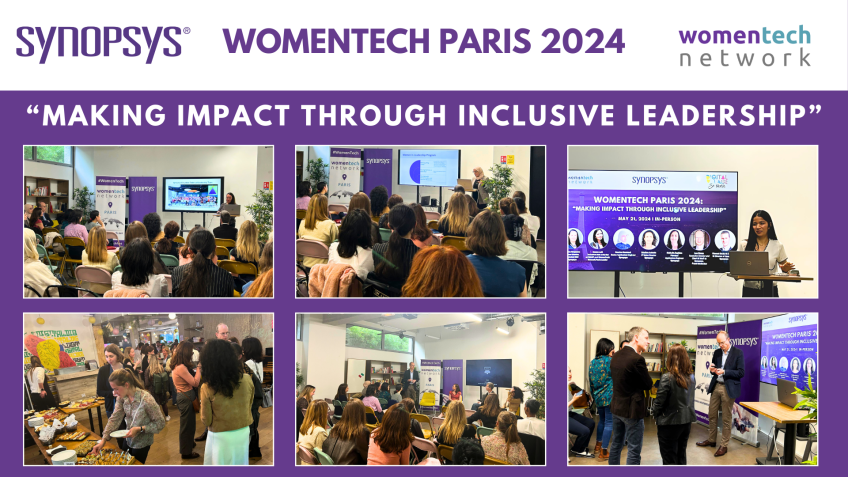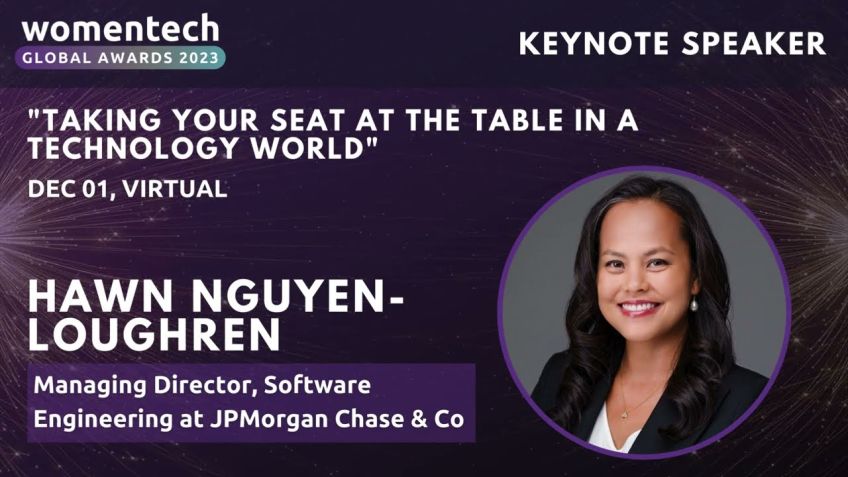The 7 Habits of Highly Effective Product Managers by Sofia Michili
Seven Productive Habits For Project Managers And Tech Professionals
Inspired by the book "Seven Habits Of Highly Effective People," this article discusses seven habits for project managers and people engaged in the technology sector that can lead to career advancement and personal growth. The principles outlined here are equally applicable to your professional and personal life.
Habit 1: More Listening, Less Talking
As Stephen Covey, the author of the book suggests, "Seek first to understand, then to be understood." This habit is essential for developing a productive mindset. The key is realizing that our comprehension of other people's statements is often limited by our own experiences and perceptions.
- Ask clarifying questions, assume good intentions, and aim to learn from each interaction
- Adopt transparent communication and be the first to set this positive example
- Recognize your limitations and maintain an open mindset
Habit 2: Think Big, Start Small
Big goals lead to significant accomplishments. Create a compelling vision and set large, impactful goals that motivate everyone. However, it is essential to take small steps to validate high-risk assumptions and ensure that your solutions add value and meet customer needs.
Habit 3: Solve Problems, Not Symptoms
As a product manager, you often encounter feature requests which might just be symptoms of an underlying problem. Use techniques such as the "Five Whys" to identify the core problem and devise multiple solution paths.
Habit 4: Measure What and Discover Why
While data is essential for decision-making in tech, the data alone doesn’t provide the complete picture. Combine data with user stories to understand the full context and increase success chances.
Habit 5: Say No by Default
Saying no goes beyond rejecting ideas that don't fit your vision or add value to your customers. It involves prioritizing your tasks and focusing on what matters the most. Recognize that by saying no, you are also saying yes to more valuable and impactful efforts.
Habit 6: Regularly Talk to Customers
Engaging with customers is crucial. The more frequent and regular these engagements, the better your understanding of their evolving needs. Make it a habit to talk with customers on a weekly basis. Approach them in a friendly and informal manner to get the best feedback.
Habit 7: Learn, Recharge, and Disconnect
It's essential to keep learning and stay updated in the tech industry. Make learning a part of your everyday life. Engage in side projects that help you practice new skills in a safe environment. However, taking breaks and disconnecting from work is equally important. A clear and rested mind is more productive and creative.
These seven habits can guide tech professionals and project managers on a path of success. Practice and mastery of these habits will not only make you more effective in your work but also more successful in life.
Video Transcription
So uh th hi everyone. Thank you for joining me today in this talk. Uh Today we're going to talk inspired by the book Seven Habits Of Highly Effective People.We're going to talk about Seven Habits you can adopt as a project manager or person working in tech that can help you be more successful in your career and also in your personal life. So you will find that you can benefit most likely uh from both uh these principles in your life and your work. So let's dive right into it habit. Number one. So more listening, less talking. This habit is inspired by the book's habit. Seek first to understand and seek first to understand and then to be understood. And it's one of the most important ones to adopt as a mindset for your whole life personally. For me, it has been the one that has helped me the most during my career, but also in my personal life. So why is that the thing is when we listen to people, we have a limited perspective. So we filter what we hear from them based on our own experiences and limited perceptions. So we don't have the full context behind everything they're saying.
So what people say doesn't always match their intentions and we need to ask clarifying questions to them to understand better what they intend to say. Also, I like to remember that when we listen, we can learn something new. Well, when we talk, we're just repeating what we already know. So by assuming good intentions by default and asking clarifying questions, we can always learn more and help uh get to understand other people better. Also, in order for us to focus on solving real customer problems and find the correct solutions for them, we need to practice and encourage transparent communication with the people we work with. So how can we best do this by being the first ones to do it? Of course, and giving the good example. So we can very easily do this by practicing questions and encouraging transparent communication, but also adopting phrases that show alone vulnerabilities and our own limited perceptions in our thinking. So for example, when we use a phrase such as I'm concerned that X will happen if we go for solution, Y then we are being actually transparent and vulnerable. So this actually uh shows to the other people that we don't um shy away from uh recognizing our own limitations. And also that we have an open mindset habit. Number two, start think big, start small. So why think big?
So we can only go as high as we aim for and if we don't have big goals, we cannot reach very far. So that's why we need to create a compelling vision of where we wanna go to focus on big and impactful goals that can raise the bar for everyone and motivate everyone. Everyone works to work on impactful and motivating projects. Um I see someone cannot hear. Can you confirm that the nurse can hear me? OK, I will continue in the meanwhile. Ok. Thank you. So maybe just try to like exit and rejoin. Ok, thanks. Um So yeah, as I was saying, uh everyone wants to work on big and impactful projects. So having a compelling vision will motivate your team, communicate your products direction and increase certain understanding with stakeholders and the rest of the company. But we can also use it as a compass to take better decisions. So starting small though means that every big journey has to start with a small step. So our plans always carry assumptions and big risks. So we need to validate those big risks by taking small steps to see if the solutions we have at value and if they really meet customer needs. So by launching an MVP or minimum viable product, it allows us to lower our risk and embrace uncertainty and failure.
So we can learn adapt and pivot habit. Number three, solve problems, not symptoms. This is my favorite one as product managers. Lots of times we get requests such as this one. which we call feature requests. So this feature requests don't always tell us the full story behind the motivations and the goals of our customers because they are actually symptoms of an underlying problem. So if we really wanna solve our users' problems, we need to dive deep and understand why they are asking those things. And a great technique for this is what they call the five wise technique, which you can Google. But it's basically essentially like Children, we keep on asking wise to dig deeper and understand essentially like peeling an orange um and get to the core of a person's request. So imagine for example that in this use case, we would ask the customer five times why. And we would actually realize that the problem is not the download button. The problem is that there is person is not empowered to make decisions. So now that we have identified the core problem, the real problem, we have multiple options to solve this problem with different solutions.
So this also makes that maybe this solution of downloading the button is not the best one and maybe we can generate more while at the same time increasing our chances of success habit. Number four measure what and discover why. So as product managers and people working in tech, we rely a lot on data to make decisions and find patterns and we should rely, but can we solely rely on data to make decisions most of the times we cannot. And that's because we need to hear the user story behind the data to get to understand the full picture. So in this example, for example, the data tells us 80% of these users spend less than 30 seconds in this page. But is this good or bad? We don't know unless if we have more context, of course. So after talking to a couple of users, we might discover that they have a completely different story. So they might be using this page as an entry point to other pages. And maybe its sole purpose is to redirect people to other pages. Uh or it might even be providing the information very quickly. So actually, it does perform very well. So the data here didn't tell us the whole story. Uh But it actually did provide us with a great opportunity to validate with our users. So it's actually the combination of both that is really great and can help us increase our chances of success. Habit.
Number five, say no by default, this is a great one also for your personal life and it's also the hardest one to master. So again, as product managers and people working tech products, we get bombarded daily with hundreds of suggestions, requests, ideas, and we love to solve problems for people. So we might be tempted to wanna do everything and jump on it. But the truth is realistically, we always have much work to do much more work than we can realistically do. So we never have the time to do everything. So we need to prioritize and the best way to do this is to say no by default and only say yes, by exception. So that means we only say yes to things that fit with our vision, add value to our customers. And the good thing is that we can use our vision and the data that we have to reject those requests with a legitimate purpose and train either way our colleagues, our customers and other people to understand that maybe there is not so much value in the things they're requesting.
Um And also remember that by saying, no, you're also saying yes, you're saying yes to other things you really wanna do, which might be much more valuable and impactful. So remember that uh that's really gonna help you say more. No habit. Number six, talk quickly to customers.
Many teams make talking to customers a big project. They do it once or twice a year. They have to recruit hundreds of users at once. They spend multiple days to recruit. But we are much better off doing that weekly and validating our assumptions regularly because this way we can also understand how our customer needs evolve over time. Also, the good thing is that if you have it blocked in your agenda weekly, then after a while, you won't need any preparation time, it will be super easy and it will be a habit because it's part of your daily workflow. And also you can ask for help. Don't feel like you have to be alone. You can involve your team members even bring engineers to take notes, listen in. And uh my main advice here is to keep it human and friendly. So don't say stuff to your users like you're doing a user test uh because they will feel really um that they're being evaluated and looked at closely and it's gonna make them stressed and hold off to give real feedback. So if you connect on an informal level and you just have a chat asking about their goals, how they use your product, uh you will get much better feedback and also to go and connect more naturally with users, just go where your users are.
So maybe there are meetups where your users gather conferences, places to hang out, just speak with them on this more natural level, which is like more on topic and less awkward and keep on interviewing your skills. So this is my favorite book for interviewing skills. Uh which basically the main idea behind this is that you should focus on asking questions that are based on past behavior. Like for example, how many times did you go to the gym last week? Instead of asking, how many times do you normally go to the gym? Uh and also do not pitch your product and improve the way you ask questions, don't ask close questions, uh ask open ended questions and try to really understand. And last one, habit number seven, learn recharge and disconnect and very much understated one, but very important because uh as people working in tech, we need to be really multitalented, our skills get quickly obsolete. And thankfully today, there's a lot of resources and abundance of places to go and learn. But the most effective way to learn is by practice. So actually, um sorry, I just got to pop up on my screen. Uh So the way to learn best by practices with side projects, so side projects are great because they help us put to practice new skills by working in a safe environment and improving um new, practicing new skills.
But most importantly, my tip is to learn more about yourself because we can't realistically be good at everything. So you should develop your own philosophy on how you like to work, understand what are your strengths and not try to overcompensate on your weaknesses. Of course, you want to improve them. But focusing on your strengths can really magnify your impact much more and last but not least put your mental health. At first, everyone is busy. We're working in a remote setting where we're constantly in calls and our brains are really cluttered, but a cluttered and tired brain can't be creative and productive. So we really need to take care of taking breaks and really disconnecting the moment you have a break, don't think about work, do like anything that is just because your brain really needs it. So the brain really works like that. It needs breaks. So by really disconnecting, taking care of our bodies doing sports, we make uh that our, our machine can run for longer. So our batteries don't get depleted before we recharge them. And also don't forget to stay in touch with your loved ones because sometimes when we're stressed or we're experiencing burnout, we really disconnect from people. But that's actually exactly what we need then to feel happy and supported. So there you have it. These were the seven habits.
Um Thank you for joining me today. The challenge is now yours, start small and pick a habit from these sessions to make it yours. And if you like, we can connect on linkedin or on my website and uh I can try to post a summary of this talk in the next day so you can remember it for next time. Thank you so much and enjoy the rest of the conference.





